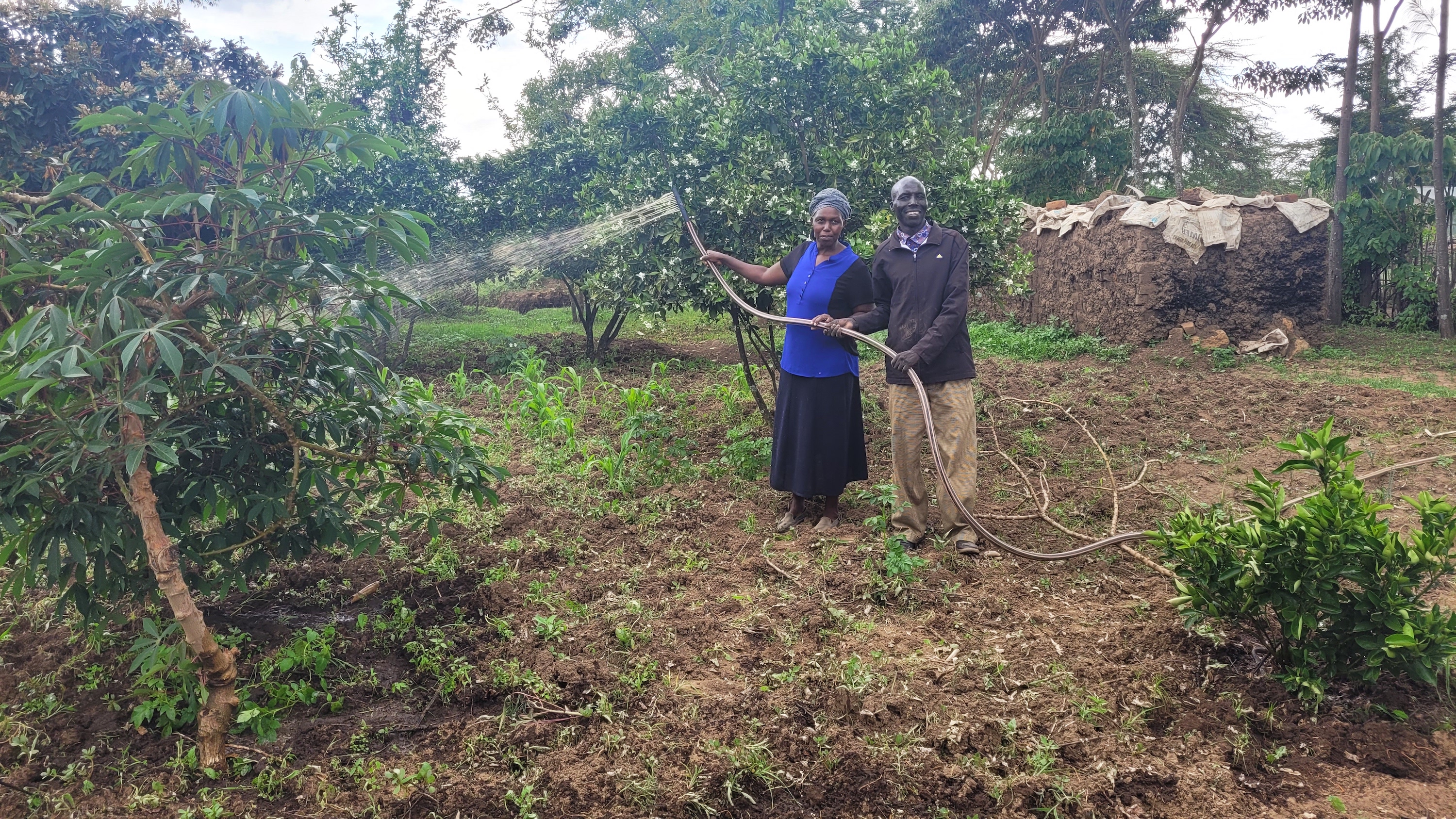Musa Chelelgo: From Job Hunter to Sustainable Farming Champion through Farmer Managed Natural Regeneration Training
By Hellen Owuor, Communications Specialist (CRIFSUP), World Vision Kenya
“For years I struggled to get a job but after World Vision trained us on FMNR [Farmer Managed Natural Regeneration] in 2013, I implemented the approach on my farmland. Now I can say, I am proudly self-employed and able to sustainably provide for my family. Everything I need is on this farm.” says Musa Chelelgo.
In just a span of two years post-adopting FMNR, Musa started to see the fruits of his labour, putting an end to his persistent quest for work.
Residing in Kiambogo, Nakuru County with his wife, affectionately referred to as Mama Rono, and their children, Musa is not only a farmer but a fervent advocate for FMNR. He has diligently divided his farm into multiple sections, utilising FMNR alongside other innovative techniques such as holistic pasture production and Climate Smart Agriculture.
His one and a half acre of FMNR land boasts regenerated trees, offering picturesque views and a refreshing environment, much to Musa's delight, especially with the morning serenades of birds serving as a daily wake-up call for his children’s school preparations.

The transformation is evident: what were once feeble shrubs now stand tall as Acacia trees, offering shade and comfort to both the family and their livestock.
Musa's aspiration of having his own mini-forest has become a reality through FMNR. Comparing to the blue gum trees he previously cultivated, he acknowledges receiving far greater benefits from the revived native Acacia trees.
“The Acacia trees provide firewood, giving my wife extra time to tend to the vegetable garen.. Furthermore, our children get enough time to rest, study and complete assignments instead of going to fetch firewood after school.” Musa explains.
This firewood not only serves household needs but also generates an added income. Through this, Musa has managed to fund the education of his eldest son, Peter, in college, with his other three children attending secondary school.
Moreover, the blossoming trees attract bees to Musa's apiary, resulting in a bountiful honey harvest. The couple's venture into apiculture brings additional income, selling 1 kilogram of honey for 1,000 Kenyan shillings (USD 6.92). Their initial harvest alone produced a remarkable 20 kilograms.
World Vision's comprehensive training also equipped Musa with skills in pasture management. He now cultivates Boma Rhodes grass on a dedicated acre, providing ample feed for his livestock and storing surplus. The seeds too, serve as another source of income when sold.
The thriving livestock, another testament to Musa’s diligence, further boosts the family's income. With a herd of 40 sheep and milk-yielding cows, the farm’s returns are multifaceted.
Given the periodic droughts in the region, the family’s foresight is evident in their water reservoir, capturing rainwater for irrigation. This aids the growth of an array of produce including bananas, cassava, oranges, avocados, and vegetables.

Mama Rono adds her perspective, “Before learning about FMNR I didn’t see the need for trees. I would have easily opted to clear the farm and plant crops instead but now I am seeing the economic benefits of these trees. We have to protect them.”
Musa's success story underlines the vast potential FMNR offers in providing sustainable, diverse income avenues for families, empowering them to face rising living costs and the challenges posed by climate change.
Musa is among the participants from Nakuru and Baringo counties who were trained by World Vision on FMNR and other restoration techniques during the implementation of the East Africa FMNR pilot project that began in October 2012. This project was funded by the Australian Government through the Australian NGO Cooperation Program (ANCP).